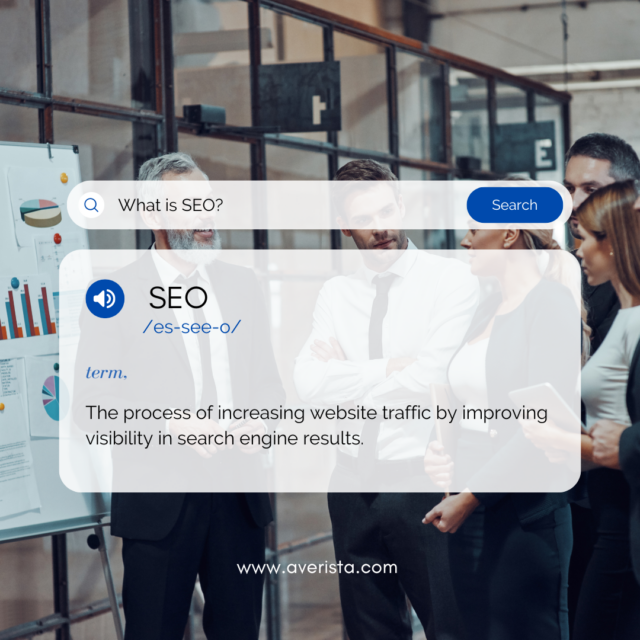Key Marketing Terms Every Beginner Should Know
A – C
- Above the Fold: The section of a webpage that is visible without scrolling.
- Affiliate Marketing: The process of earning a commission by promoting other people’s/company’s products.
- API: Interface through which external systems can access and update data, often used for software integration.
- Autoresponder: A program that sends an automatic response to incoming emails.
- Bounce Rate: The percentage of visitors to a website who leave the site after viewing only one page. A high bounce rate can signal issues with your content or user experience. Learn more about reducing bounce rates in our 7 Online Marketing Strategies to Boost Sales.
- Broadcast: An email sent to a list of recipients at a scheduled time.
- Call to Action (CTA): An instruction designed to provoke an immediate response, such as “Book Now” or “Download Now.”
- Campaign: An online marketing effort to drive engagement, conversions, traffic, or revenue.
- Canva: A graphic design platform for creating worksheets, lead magnets, and social media graphics.
- Chatbot: An application that processes text and responds according to a set of rules or specific commands.
- Cold Traffic/Contact: Someone who is not familiar with the brand/company.
- Conversion Rate: The percentage of website visitors who complete a defined goal, such as completing a form or making a purchase. Discover effective ways to increase conversion rates in Mastering Digital Content.
- Customer Relationship Management (CRM): A strategy to manage a company’s interactions with their customers, typically through a CRM system that manages customer data.
D – F
- Double Opt-In: An email sent to a new subscriber asking them to confirm their email address.
- Email Marketing: A form of direct marketing that uses email to promote a business’s products/services.
- Engagement: User interactions such as likes, shares, or comments. Enhance your social media engagement with these 12 Proven Strategies for Success.
- Favicon: The small icon image that represents your website, often found in the address bar of a web browser.
- Funnel: A collection of stages that prospective customers move through, from awareness to purchase.
H – L
- Hashtag: A phrase beginning with the symbol “#” used in social media for tagging content.
- Keyword: A word used to find specific information in a search engine.
- Landing Page: An individual web page with the specific function of collecting information from the visitor.
- Lead: A prospect or potential customer who has shown interest in a product or service.
- Lead Magnet: A specific deliverable offered to prospects in return for contact information, typically to join an email list.

O – S
- Opt-In Email: An email list where subscribers have willingly given their information to receive communication.
- Opt-Out: When someone chooses not to receive automated marketing emails.
- Organic Search: Traffic to a website that comes through clicking on a non-paid search engine result.
- Retargeting: Online advertising that targets people who have previously visited your website without converting.
- SEO (Search Engine Optimization): The process of increasing website traffic by improving visibility in search engine results. For a deeper dive into SEO strategies, read Mastering Digital Content.
- Social Media Engagement: Interactions such as likes, shares, comments, and follows on social media platforms.
T – W
- Tracking Code: A script placed on a website to gather data for tools like Google Analytics.
- Webinar: An online seminar used to train, inform, or sell to an audience.
- WordPress: A blogging and website content management system, also used to create learning management systems with plugins like Learndash.
Enhancing Your Marketing Efforts
By familiarizing yourself with these essential marketing terms, you’ll be better equipped to understand marketing strategies. You’ll grasp what your team is discussing, make informed decisions, and even implement some strategies on your own. Additionally, this knowledge will enhance your marketing efforts and help you collaborate more effectively with professionals. For example, optimizing your social media can further amplify your brand presence. Check out these 12 Proven Strategies for Success to enhance your social media presence.
Wrapping It Up
Marketing doesn’t have to be a mystery. With this dictionary of essential marketing terms, you’re now equipped to tackle your marketing challenges head-on. In conclusion, marketing is an ongoing journey, and the more you learn, the more successful you’ll become. Follow Averista for more insights and subscribe to our newsletter for regular updates and tips.
Ready to Take Action?
Feeling empowered? Subscribe to our newsletter for more marketing tips and insights. Furthermore, follow Averista on social media and stay updated with the latest trends and strategies. Contact us today for a free consultation and take your marketing to the next level!
FAQs
Why is understanding marketing terminology important?
Knowing marketing terminology helps you communicate more effectively with professionals, leading to better decision-making and successful marketing strategies. That’s why a marketing dictionary like the one above is a great source to help you achieve your goals.
What is a call to action (CTA) in marketing?
A CTA encourages immediate responses from your audience, such as booking a service or downloading a resource, thereby driving engagement and conversions.
Why does bounce rate matter?
A high bounce rate indicates visitors leave your site after viewing only one page, signaling potential issues with your content or user experience. Learn more about reducing bounce rates in our 7 Online Marketing Strategies to Boost Sales.
Why use graphic design platforms like Canva?
Platforms like Canva help create professional-quality graphics for social media and marketing materials, enhancing your brand’s visual appeal.
What is the role of a CRM system in marketing?
A CRM system manages customer interactions and data, improving relationships and streamlining marketing efforts.
How can SEO improve my website’s performance?
SEO enhances your website’s visibility in search engine results, driving more organic traffic and potential leads to your site. For more SEO strategies, read Mastering Digital Content.


